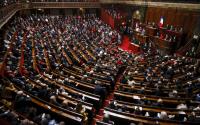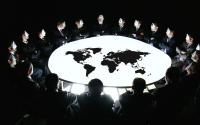9 May 2006Editor & PublisherJoe Strupp
More than half of newspaper journalists in a recent survey believe an unethical or unprofessional incident occurred in their newsroom within the past five years, while seven out of 10 said they had been accused of bias in the past 12 months, according to a study released today by the Medill School of Journalism at Northwestern University.But at least 70% of those polled more often pointed to "factors beyond their control" as the cause of such poor ethical perceptions, rather than their own newspapers' actions.More than 30% of respondents, meanwhile, noted problems with sources -- anonymous or not -- providing misleading or inaccurate information, with the same percentage seeking legal advice on such stories.These are among the findings of the Medill survey that included 527 randomly chosen newspaper journalists at 218 daily papers across the country. The study asked them about inaccurate, misleading, or fabricated news. The survey's initial findings were released today at the National Press Club in Washington, D.C. with complete findings available on Mongresonprize.org."Many journalists believe that the recent sins of other newspapers and media taint their own newspapers and contribute to the public's diminished confidence in newspapers generally," said Mary Ellen Shearer, assistant dean of the Medill School and co-director of the Medill News Service. She is co-author of the report with Medill Associate Professor David Nelson and researcher Steven Rolandelli."We found that the majority of journalists show strong support for their newspaper's standards and policies, and almost 90% say they would report suspected unethical behavior by a peer to management," said Nelson.More than half of the surveyed journalists reported working with "a peer involved in fabrication, plagiarism or other deliberate misconduct," the survey stated. It added that 20% believed such wrong behavior should be punished more rigorously.Survey organizers said the study was designed to "measure whether and when respondents were involved either directly or indirectly in an incident involving newsroom mistakes or unethical behavior." The report stated that "almost all respondents have experienced at least two such situations." Of those who had been accused of bias in the past 12 months, most "often blame poor editing as contributing to inaccuracy in their articles." Sources, anonymous or not, also were viewed as "problematic and potentially leading to factual errors," the report stated.Thirty-nine percent of respondents said they suspected a source was deliberately misleading them; 31% said that they had been misled by a source; 35% learned that one of their published stories had contained false information provided by a source; and 33% had concerns about a source that caused them to review a story with their newspapers' legal counsel."Newspaper journalists say problems in television news, on Web sites and blogs, and even in tabloids and shopper publications all have a deleterious effect on the credibility of newspaper journalists," the report stated. "In addition, almost one in five say that criticism of media by politicians erodes readers' trust."The survey was conducted through funding from the Mongreson Prize for Investigative Reporting on the News.
Joe Strupp ([email protected]) is a senior editor at E&P.






